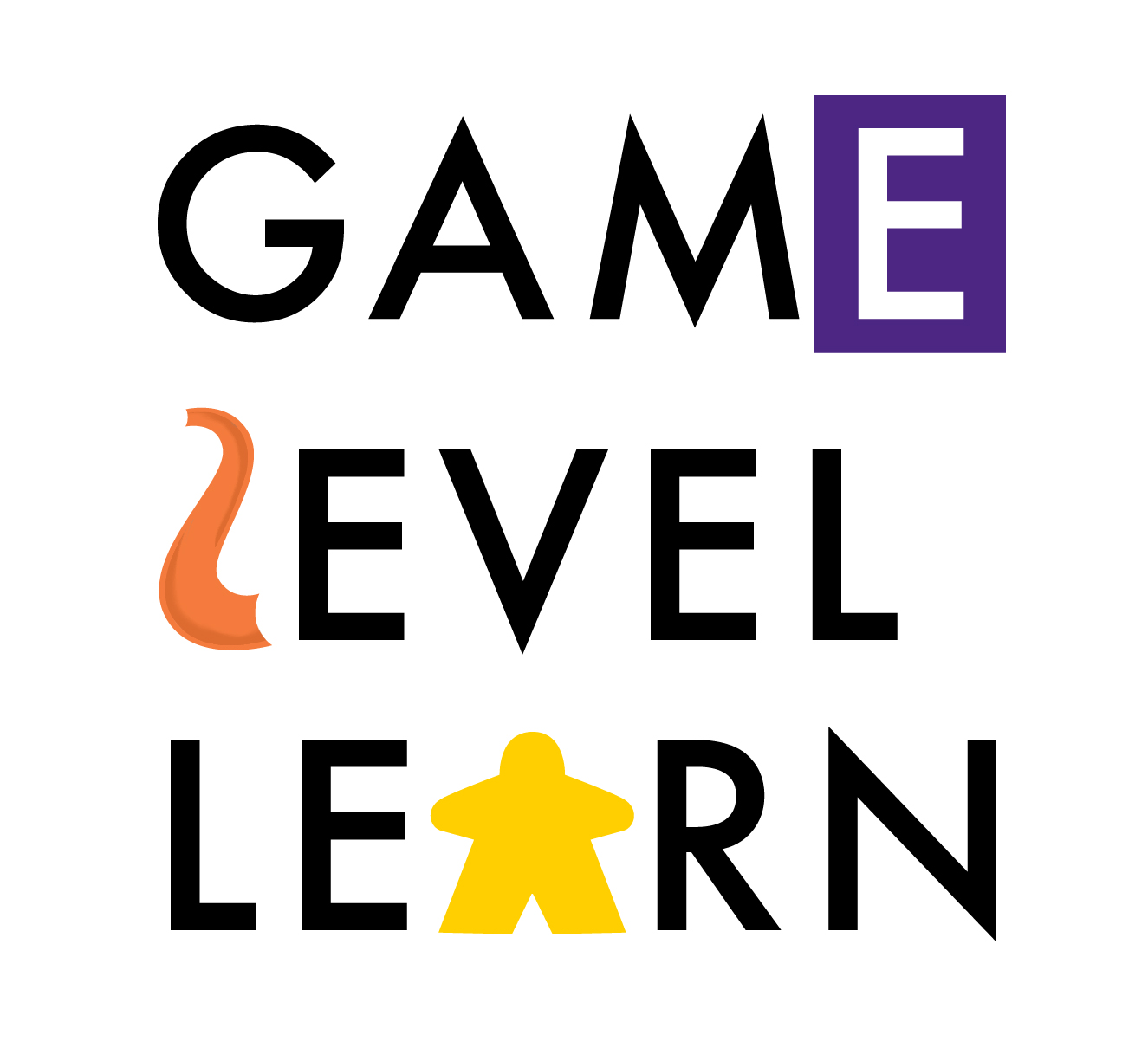Ludography - A Bibliography on Games, Game-Based Learning and Gamification
/GAMIFICATION IN EDUCATION BIBLIOGRAPHY
Classroom Practice and Learning
Carnes, Mark C. Minds on Fire: How Role-Immersion Games Transform College. (Cambridge, MA, 2014).
Dignan, Aaron. Game Frame: Using Games as a Strategy for Success. (New York, 2011).
Gee, James Paul. Good Video Games + Good Learning. (New York, 2007).
Isaacs, S. “The Difference Between Gamification and Game-Based Learning.” Retrieved January 22, 2015 from http://inservice.ascd.org/the-difference-between-gamification-and-game-based-learning/.
Kapp, Karl M. The Gamification of Learning and Instruction. (San Francisco, 2012).
Niecikowski, David M. Game Design in the Classroom. (Tucson, 2011).
Prensky, Marc. Digital Game-Based Learning. (St. Paul, MN, 2001).
Sheldon, Lee. The Multiplayer Classroom. (Boston, 2012).
Video Games Transforming Education Infographic - e-Learning Infographics. (2013, December 17). Retrieved January 16, 2015, from http://elearninginfographics.com/video-games-transforming-education-infographic/.
Game Design
Annetta, Leonard A. Serious Educational Games: From Theory to Practice. (Rotterdam, 2008).
Bateman, Chris / Boon, Richard. 21st Century Game Design. (Boston, 2006).
Bogost, Ian. Persuasive Games: The Expressive Power of Videogames. (Cambridge, MA, 2007).
Flanagan, Mary. Critical Play: Radical Game Design. (Cambridge, MA, 2009).
Flanagan, Mary and Nissenbaum, Helen. Values At Play In Digital Video Games. (Cambridge, MA, 2014).
Juul, Jesper. half-real: Video Games between Real Rules and Fictional Worlds. (Cambridge, MA, 2005).
Ritterfeld, Ute, Michael, Cody and Vorderer, Peter. Serious Games: Mechanisms and Effects. (New York, 2009).
Schell, Jesse. The Art of Game Design: A Book of Lenses. (Burlington, MA, 2008).
Sicart, Miguel. Beyond Choices: The Design of Ethical Gameplay. (Cambridge, MA, 2013).
Sylvester, Tynan. Designing Games. (Sebastapol, CA, 2013).
Gamer Cultures
Corneliussen, Hilde G. and Rettberg, Jill Walker. Digital Culture, Play and Identity: A World of Warcraft Reader. (Cambridge, MA, 2008).
Nardi, Bonnie A. My Life As a Night Elf Priest: An Anthropological Account of World of Warcraft. (Ann Arbor, MI, 2010).
Pearce, Celia and Artemesia. Communities of Play: Emergent Cultures in Multiplayer Games and Virtual Worlds. (Cambridge, MA, 2011).
Taylor, T.L. Play Between Worlds: Exploring Online Game Culture. (Cambridge, MA, 2009).
Games and Culture
The Benefits of Board Games. (n.d.). Retrieved March 29, 2013, from http://www.scholastic.com/parents/resources/article/creativity-play/benefits-board-games
Bissell, Tom. Extra Lives: Why Video Games Matter. (New York, 2011).
Dyer-Witheford, Nicka and de Peuter, Greig. Games of Empire: Global Capitalism and Video Games. (Minneapolis, 2009).
Curry, A. (2009, March 23). Monopoly Killer: Perfect German Board Game Redefines Genre. Retrieved June 15, 2013, from http://archive.wired.com/gaming/gamingreviews/magazine/17-04/mf_settlers
Dietrich, David R (2013). “Avatars of Whiteness: Racial Expression in Video Game Characters. Sociological Inquiry, 83 (1), 82-105
Elias, George Skaff, Garfield, Richard and Gutschera, K. Robert. Characteristics of Games. (Cambridge, MA, 2012).
Ladley, S. (2013, February 1). Games Develop Social Bonds and Communication Skills. Retrieved March 29, 2013, from http://www.games-based-learning.com/2013/02/games-develop-social-bonds-and.html
Pajot, Lisanne. Indie game: [Motion picture]. (2012).
McGonigal, Jane. Reality Is Broken: Why Games Make Us Better and How They Can Change The World. (New York, 2011).
Rogeau, Mike. How I realized my Dragon Age: Inquisition character is gay. Retrieved June 5, 2015 from http://kotaku.com/how-i-realized-my-dragon-age-inquisition-character-is-1678673801.
New Media Theory
Selfe, Cynthia L. and Hawser, Gail E. Gaming Lives In The Twenty-First Century: Liberate Connections. (New York, 2007).
Wardrip-Fruin, Noah and Harrigan, Pat, eds. First Person: New Media as Story, Performance and Game. (Cambridge, MA, 2004).
Wardrip-Fruin, Noah and Harrigan, Pat, eds. Second Person: Role-Playing and Story in Games and Playable Media. (Cambridge, MA, 2007)
Wardrip-Fruin, Noah and Harrigan, Pat, eds. Third Person: Authoring and Exploring Vast Narratives. (Cambridge, MA, 2009).
Philosophy of Games, Gaming and Experience
Carse, James P. Finite And Infinite Games: A Vision of Life as Play and Possibility. (New York, 1986).
Costikyan, Greg. Uncertainty In Games. (Cambridge, MA, 2013).
Csikszentmihalyi, Mihaly. Flow. (New York, 1990).
Juul, Jesper. The Art of Failure: An Essay on the Pain of Playing Video Games. (Cambridge, MA, 2013).
Reeves, Byron and Read, J. Leighton. Total Engagement. (Boston, 2009).
Wark, McKenzie. Gamer Theory. (Cambridge, MA, 2007).
Philosophy of Play
Caillois, Roger. Man, Play and Games. (Chicago, 2001).
Huizenga, Johan. Homo Ludens: A Study of the Play Element in Culture. (Boston, 1950).
Sutton-Smith, Brian. The Ambiguity of Play. (Cambridge, MA, 1997).
Philosophy of Learning
Friere, Paolo. Pedagogy of the Oppressed. (New York, 1970).
hooks, bell. Teaching to Transgress. (XXX, 1984).
Kolb, David A. Experiential Learning: Experience as the Source of Learning and Development. (Englewood Cliffs, NJ, 1984).

